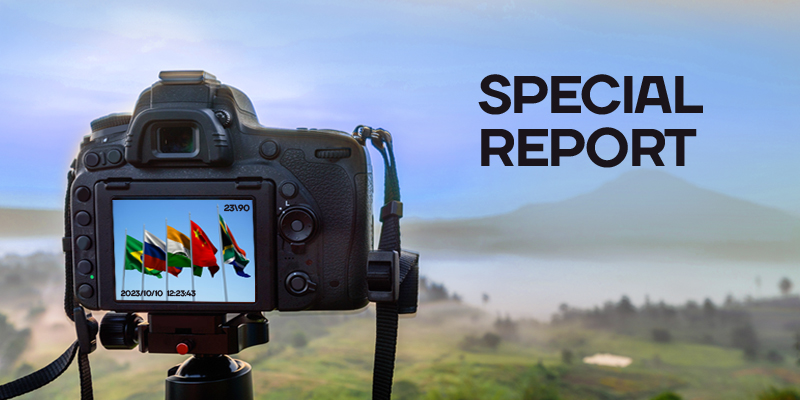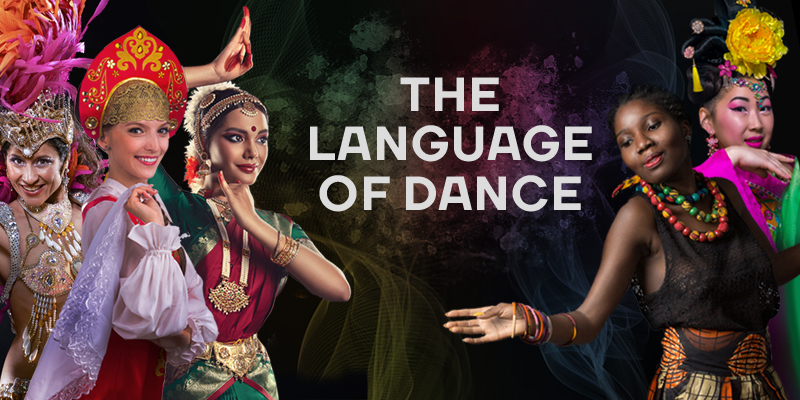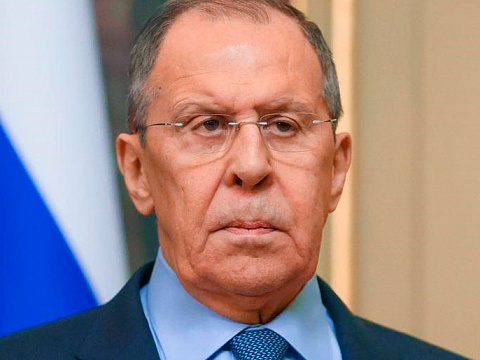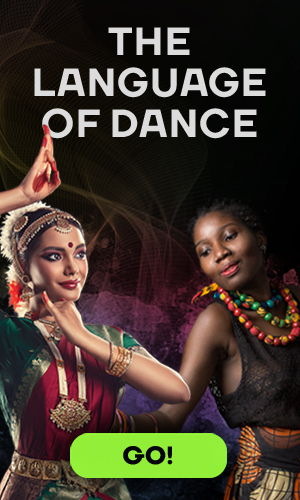One People Film Festival to give new impetus to South African film industry - director Johann Abrahams
JOLENE: Hi, I'm Jolene Martin.
As you may have heard on the twenty seventh of April Cape Town, South Africa becomes the spectacular backdrop to the One People International Film Festival. Here to tell us more is award winning journalist and filmmaker Johann Abrahams. Johann, I'd like to start with a quote that the mayor of Cape Town, Dan Parlato, made recently in relation to the One People International Film Festival. And he said “ensuring the safe, regulated return to the full work of this industry will act as a catalyst for the return to work of the broad range of service providers that support this industry”. Judging by that, there seems to be a great desire to kick, start or resuscitate the film industry. How does the One People International Film Festival endeavour to do so?
JOHANN: Well, this festival certainly will bring back will kick start that industry again. And there's a good reason why we want to kick start the industry. It's a 5.5 billion industry That's 800 million US dollars. So it's huge and it puts people to work. And that's what we're trying to do again our industry is not, our local film industry producing film is not that big. Locally produced films, 22 in 2019, but in 2010 we produced about 10. So there is growth and we create jobs. Six thousand jobs were created in 2017 and 2018/2019, 9000 permanent jobs. So growth there as well. So definitely we need to kickstart the industry to bring it back and to to put people back to work again.
JOLENE: When Dan Plato refers to extended service providers. What is he talking about?
JOHANN: Well, we speak about it's not just people that are making films that benefit from that. That's it's not just the filmmakers. It's not just about the films being made. It's also about all the spin offs. There's this on the fringes. There's tourism that benefits greatly from bringing filmmakers here. And also in the local film is made. There's a lot of service providers, these the catering and then the tourism industry where people don't sit around and just make the film for five or six days. The it's the same day where they where they can walk around and experience this beautiful city. And that's where your tourism industry comes in. People can visit Robben Island, people can visit Table Mountain Wine Estates, and they all make something. So there's so many spinoffs, too many to mention.
JOLENE: Yes, of course. Including hospitality. One of the standards of the One People International Film Festival is it being truly inclusive, so a holistic, full spectrum approach, including seasoned filmmakers all the way to first time filmmakers and in so doing, creating an incubator effect. I know that this developmental aspect is very close to your heart as well as a focus for the organisers. Why?
JOHANN: Well, we see if we look at South Africa, for instance, we can really see that the transformation did not really take place in the film industry. We see strong voices from one sector of the community, but not we don't see a range. And the diversity is not reflected in our films that we produce locally. If you look at languages, for instance, we don't see the Kikukuwa language in films, people speaking that.
JOLENE: KIKUCUWA being the indigenous language of Southern Africa,?
Indigenous language of Southern Arica spoken widely in Namibia and spoken, still spoken in the Northern Cape by people classified as Colored and who are the direct descendants of the KHOI-KHOI ncew, which is the Bushmen or the Son still. There's few people speaking that language, but further North there's more people that still speak. But in South Africa, we have very few speakers and before they die out, we want to see that language expand. And why not use the film medium and make movies where the people speak that language, or at least one or two characters speak? That will go a long way in promoting that language.
JOLENE: and also transferring skills to those communities I imagine.
JOHANN: It is hugely important that we try to bring those skills to those communities so that they are empowered to tell these stories themselves so they don't have people from coming from another country to come and tell their stories so that they tell their own stories. Not even people coming from Cape Town to tell these stories, but they are right there where they are with the filmmakers from that area come out. And it's not that they don't have the stories. The stories are there, the stories are there, and it's written by them. And they perform it and they do it, maybe not in the form that we know in the film industry, but I mean theatre. So I'm I speak I've spoken to many filmmakers in that region. And the fact is that they are all looking for that kick start, which maybe this will bring.
JOLENE: And, of course, informal pitching sessions, which will be really exciting. Johann, please be so kind as to give us an overview of the competition categories and what it is you're looking forward to seeing coming through in the various categories.
JOHANN: We have, of course, the main part of the festival, the main festival, the main focus of the festival, which a lot of people will go to watch, is the 10 films that we will select that will come from seasoned film makers around the globe. And these are well crafted films that will probably go on to other awards as well. And also not just seasoned filmmakers, but also for first time. Filmmakers might be selected in this category. But we're talking about the big film. We're talking about mostly indie films, maybe, but films that are well crafted with strong characters. Good stories. Yes, that's that's what what will be in that category. And that cateregory will also from that there will be awards given, best film, best director, etc.
We also have another category or tiers of category, which is for strong, innovative filmmaking is people with a distinct voice, a unique voice, and 10 films will be selected to represent in that category. So that would be interesting as well. There's also a COVID -19 category four filmmakers who are looking at stories that came out of stories of hope, of course, that came out of this whole pandemic mostly probably documentaries, and that category is there for everyone to enter.
But the one that I'm particularly interested in is the Category four indigenous filmmakers, not that indigenous filmmakers cannot enter into any of the other categories, but this particular category is designed for our indigenous filmmakers, South African filmmakers. And thereʼs a panel that will overlook this as a panel who has a strong bias almost towards indigenous films such as yourself, me and Morris and Hakeem Kae-Kazim from Nigeria. We will look at indigenous films.
That's over forty five minutes long, documentaries and fiction. But what we're looking for here is people with strong stories, strong, compelling characters shot in any way so unconventional ways of making the film like with your cell phone, do it and submit your film. We will be open to stories that are well crafted. But even if we see them, how can I put this, even if we see the promise of a good storyteller. We could mentor to that person, you don't really have to win or be your story might not be selected this time around, but we can certainly you you'll certainly get the attention that you show promise. And then you can you can go back and resubmit that film the following year by following the advice from industry professionals.
JOLENE: So there is a mentorship component.
JOHANN: There's a big mentorship component where filmmakers will give you feedback. You will be here even like I say, even if your film is not selected, it'll be noticed if it's a well-made film or it has the potential to become a good film. And there might be a few years there, but that could be during the mentorship process can be ironed out.
JOLENE: The festival kicks off on the twenty sixth of April with a star studded golf event and a glittering red carpet hosted under that magnificent mountain. I mean, if that is not grand, I don't know what is, but the twenty seventh of April is quite an auspicious day here in South Africa. Is this a coincidence?
JOHANN: It's not a coincidence. It is picked and hand picked. It's the 27th of Freedom Day. It's our Independence Day. And so there's no there's a huge symbolic meaning attached to it. If you look at the films that we are accepting into it, though, the freedom, the. Diversity, all of that goes hand-in-hand with the ethos of what we're trying to do, the second in place until the or the event lasts, until the second of May, but of the 1st of May, we will conclude the event with a Gala evening, I suppose, and the 1st of May again is International Workers Day, also loaded with symbolism.
JOLENE: So much meaning to it. And once again, looking at this phenomenal view, Cape Town really is showing off today, isn't it?
JOHANN: Yeah, Hakeem keep talking about, you know, Hakeem from Nigeria. He thinks this film festival should really be the coming of Africa.
JOLENE: Absolutely.
JOHANN: It's got everything. It's got the beach. It's got the mountains. It's got Robben Island.
JOLENE: Lots of meaning there indeed looking at this incredible view, it would be a crime to be locked up in a cinema all day. There are tons of things to look forward to, Like?
JOHANN: You could go trip up People Mountain, a trip to Robben Island where Mandela was incarcerated. And remember, Mandela was the only one that was incarcerated. Since 1652 , and even before local indigenous leaders were incarcerated, Ochumato was the escape twice. David Stuurman was killed in the mountains by the British, escaped twice. So, yeah, Robben Island, you have to go to Robben Island. But bear in mind that history is a huge history. It's not just a 1994 history.
JOLENE: And with the festival being completely Covid-19 compliant, it will be a hybrid event. What is the One People International Film Festival doing to remain within regulation?
JOHANN: Look, the festival is near the end of April or is at the end of April. We hope that by that time we will be not quite out of the woods, but we hope that the restrictions would be not as strict as it is at the moment. We are on level three at the moment. We hope that we might be further down, that it might be a level one, level two, which will allow a certain number of people in theatres and workshops and master classes might be able to go go on with the with the restrictions at the time. So these that your gala evenings might be also still ongoing with bearing in mind the restrictions. So we going ahead with all of it. But then there's also the online capability or the online aspect of it where we could screen online forms. And and so we will go ahead, but we will bear in mind we will obviously it's too early to say what will happen in April.
JOLENE: So either way, it will be happening ? JOHANN: Either way.It is happening as far as I know.
JOLENE: Well, there you have it. We'll see you on the 27th seventh of April. For more information on anything regarding the One People International Film Festival, please go to the website www.onepeoplefilmfestival.com. From there, you'll be navigated to the full freeway site as well as all social media handles for up to the minute updates.
Video: Moja Media
As you may have heard on the twenty seventh of April Cape Town, South Africa becomes the spectacular backdrop to the One People International Film Festival. Here to tell us more is award winning journalist and filmmaker Johann Abrahams. Johann, I'd like to start with a quote that the mayor of Cape Town, Dan Parlato, made recently in relation to the One People International Film Festival. And he said “ensuring the safe, regulated return to the full work of this industry will act as a catalyst for the return to work of the broad range of service providers that support this industry”. Judging by that, there seems to be a great desire to kick, start or resuscitate the film industry. How does the One People International Film Festival endeavour to do so?
JOHANN: Well, this festival certainly will bring back will kick start that industry again. And there's a good reason why we want to kick start the industry. It's a 5.5 billion industry That's 800 million US dollars. So it's huge and it puts people to work. And that's what we're trying to do again our industry is not, our local film industry producing film is not that big. Locally produced films, 22 in 2019, but in 2010 we produced about 10. So there is growth and we create jobs. Six thousand jobs were created in 2017 and 2018/2019, 9000 permanent jobs. So growth there as well. So definitely we need to kickstart the industry to bring it back and to to put people back to work again.
JOLENE: When Dan Plato refers to extended service providers. What is he talking about?
JOHANN: Well, we speak about it's not just people that are making films that benefit from that. That's it's not just the filmmakers. It's not just about the films being made. It's also about all the spin offs. There's this on the fringes. There's tourism that benefits greatly from bringing filmmakers here. And also in the local film is made. There's a lot of service providers, these the catering and then the tourism industry where people don't sit around and just make the film for five or six days. The it's the same day where they where they can walk around and experience this beautiful city. And that's where your tourism industry comes in. People can visit Robben Island, people can visit Table Mountain Wine Estates, and they all make something. So there's so many spinoffs, too many to mention.
JOLENE: Yes, of course. Including hospitality. One of the standards of the One People International Film Festival is it being truly inclusive, so a holistic, full spectrum approach, including seasoned filmmakers all the way to first time filmmakers and in so doing, creating an incubator effect. I know that this developmental aspect is very close to your heart as well as a focus for the organisers. Why?
JOHANN: Well, we see if we look at South Africa, for instance, we can really see that the transformation did not really take place in the film industry. We see strong voices from one sector of the community, but not we don't see a range. And the diversity is not reflected in our films that we produce locally. If you look at languages, for instance, we don't see the Kikukuwa language in films, people speaking that.
JOLENE: KIKUCUWA being the indigenous language of Southern Africa,?
Indigenous language of Southern Arica spoken widely in Namibia and spoken, still spoken in the Northern Cape by people classified as Colored and who are the direct descendants of the KHOI-KHOI ncew, which is the Bushmen or the Son still. There's few people speaking that language, but further North there's more people that still speak. But in South Africa, we have very few speakers and before they die out, we want to see that language expand. And why not use the film medium and make movies where the people speak that language, or at least one or two characters speak? That will go a long way in promoting that language.
JOLENE: and also transferring skills to those communities I imagine.
JOHANN: It is hugely important that we try to bring those skills to those communities so that they are empowered to tell these stories themselves so they don't have people from coming from another country to come and tell their stories so that they tell their own stories. Not even people coming from Cape Town to tell these stories, but they are right there where they are with the filmmakers from that area come out. And it's not that they don't have the stories. The stories are there, the stories are there, and it's written by them. And they perform it and they do it, maybe not in the form that we know in the film industry, but I mean theatre. So I'm I speak I've spoken to many filmmakers in that region. And the fact is that they are all looking for that kick start, which maybe this will bring.
JOLENE: And, of course, informal pitching sessions, which will be really exciting. Johann, please be so kind as to give us an overview of the competition categories and what it is you're looking forward to seeing coming through in the various categories.
JOHANN: We have, of course, the main part of the festival, the main festival, the main focus of the festival, which a lot of people will go to watch, is the 10 films that we will select that will come from seasoned film makers around the globe. And these are well crafted films that will probably go on to other awards as well. And also not just seasoned filmmakers, but also for first time. Filmmakers might be selected in this category. But we're talking about the big film. We're talking about mostly indie films, maybe, but films that are well crafted with strong characters. Good stories. Yes, that's that's what what will be in that category. And that cateregory will also from that there will be awards given, best film, best director, etc.
We also have another category or tiers of category, which is for strong, innovative filmmaking is people with a distinct voice, a unique voice, and 10 films will be selected to represent in that category. So that would be interesting as well. There's also a COVID -19 category four filmmakers who are looking at stories that came out of stories of hope, of course, that came out of this whole pandemic mostly probably documentaries, and that category is there for everyone to enter.
But the one that I'm particularly interested in is the Category four indigenous filmmakers, not that indigenous filmmakers cannot enter into any of the other categories, but this particular category is designed for our indigenous filmmakers, South African filmmakers. And thereʼs a panel that will overlook this as a panel who has a strong bias almost towards indigenous films such as yourself, me and Morris and Hakeem Kae-Kazim from Nigeria. We will look at indigenous films.
That's over forty five minutes long, documentaries and fiction. But what we're looking for here is people with strong stories, strong, compelling characters shot in any way so unconventional ways of making the film like with your cell phone, do it and submit your film. We will be open to stories that are well crafted. But even if we see them, how can I put this, even if we see the promise of a good storyteller. We could mentor to that person, you don't really have to win or be your story might not be selected this time around, but we can certainly you you'll certainly get the attention that you show promise. And then you can you can go back and resubmit that film the following year by following the advice from industry professionals.
JOLENE: So there is a mentorship component.
JOHANN: There's a big mentorship component where filmmakers will give you feedback. You will be here even like I say, even if your film is not selected, it'll be noticed if it's a well-made film or it has the potential to become a good film. And there might be a few years there, but that could be during the mentorship process can be ironed out.
JOLENE: The festival kicks off on the twenty sixth of April with a star studded golf event and a glittering red carpet hosted under that magnificent mountain. I mean, if that is not grand, I don't know what is, but the twenty seventh of April is quite an auspicious day here in South Africa. Is this a coincidence?
JOHANN: It's not a coincidence. It is picked and hand picked. It's the 27th of Freedom Day. It's our Independence Day. And so there's no there's a huge symbolic meaning attached to it. If you look at the films that we are accepting into it, though, the freedom, the. Diversity, all of that goes hand-in-hand with the ethos of what we're trying to do, the second in place until the or the event lasts, until the second of May, but of the 1st of May, we will conclude the event with a Gala evening, I suppose, and the 1st of May again is International Workers Day, also loaded with symbolism.
JOLENE: So much meaning to it. And once again, looking at this phenomenal view, Cape Town really is showing off today, isn't it?
JOHANN: Yeah, Hakeem keep talking about, you know, Hakeem from Nigeria. He thinks this film festival should really be the coming of Africa.
JOLENE: Absolutely.
JOHANN: It's got everything. It's got the beach. It's got the mountains. It's got Robben Island.
JOLENE: Lots of meaning there indeed looking at this incredible view, it would be a crime to be locked up in a cinema all day. There are tons of things to look forward to, Like?
JOHANN: You could go trip up People Mountain, a trip to Robben Island where Mandela was incarcerated. And remember, Mandela was the only one that was incarcerated. Since 1652 , and even before local indigenous leaders were incarcerated, Ochumato was the escape twice. David Stuurman was killed in the mountains by the British, escaped twice. So, yeah, Robben Island, you have to go to Robben Island. But bear in mind that history is a huge history. It's not just a 1994 history.
JOLENE: And with the festival being completely Covid-19 compliant, it will be a hybrid event. What is the One People International Film Festival doing to remain within regulation?
JOHANN: Look, the festival is near the end of April or is at the end of April. We hope that by that time we will be not quite out of the woods, but we hope that the restrictions would be not as strict as it is at the moment. We are on level three at the moment. We hope that we might be further down, that it might be a level one, level two, which will allow a certain number of people in theatres and workshops and master classes might be able to go go on with the with the restrictions at the time. So these that your gala evenings might be also still ongoing with bearing in mind the restrictions. So we going ahead with all of it. But then there's also the online capability or the online aspect of it where we could screen online forms. And and so we will go ahead, but we will bear in mind we will obviously it's too early to say what will happen in April.
JOLENE: So either way, it will be happening ? JOHANN: Either way.It is happening as far as I know.
JOLENE: Well, there you have it. We'll see you on the 27th seventh of April. For more information on anything regarding the One People International Film Festival, please go to the website www.onepeoplefilmfestival.com. From there, you'll be navigated to the full freeway site as well as all social media handles for up to the minute updates.
Video: Moja Media
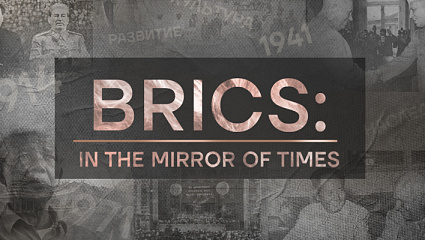
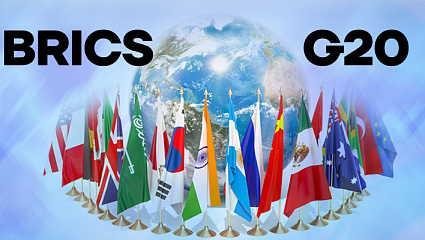

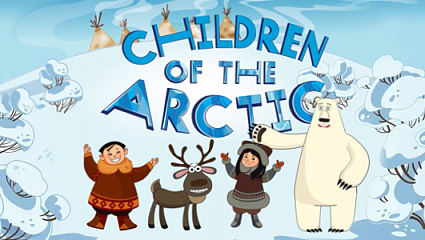
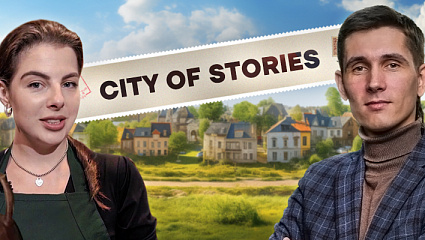


 DIGITAL WORLD
DIGITAL WORLD









